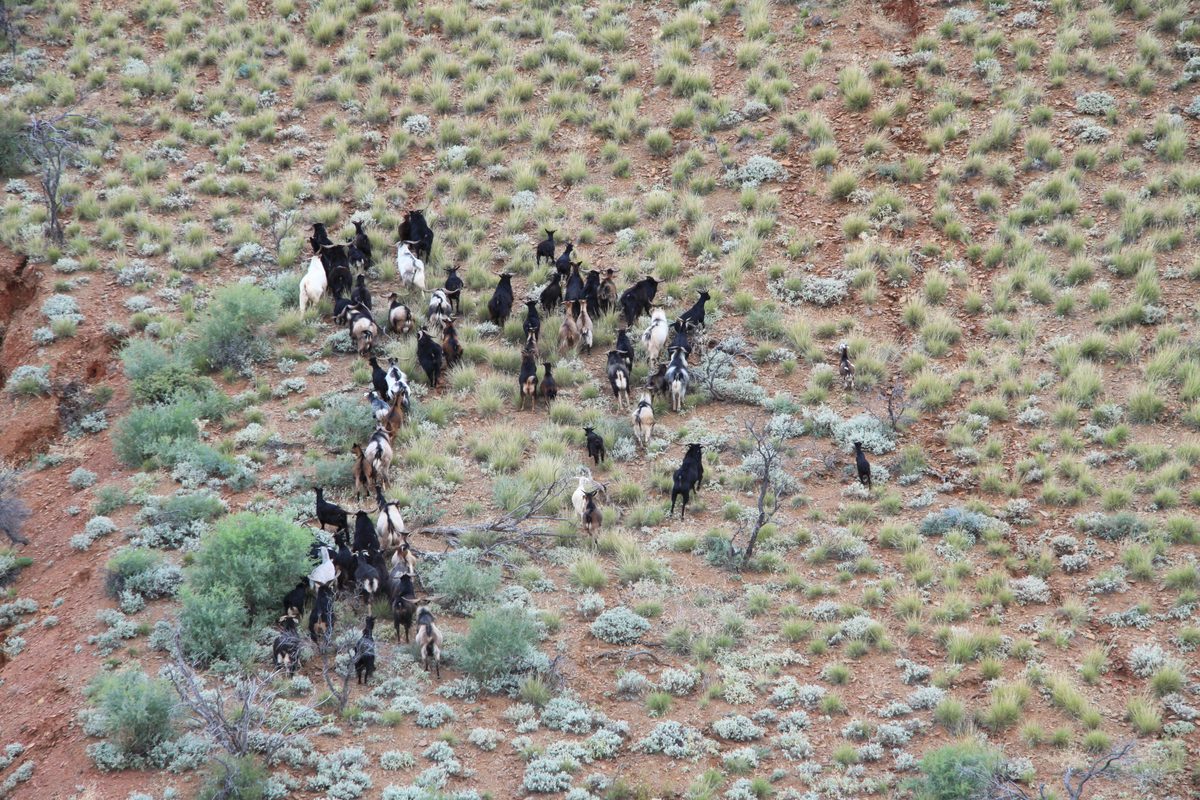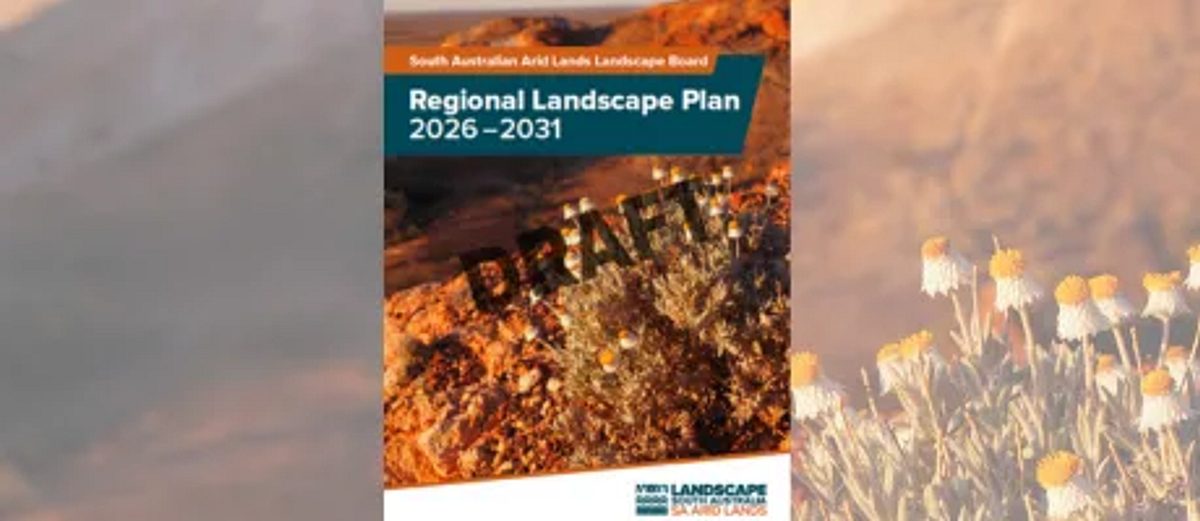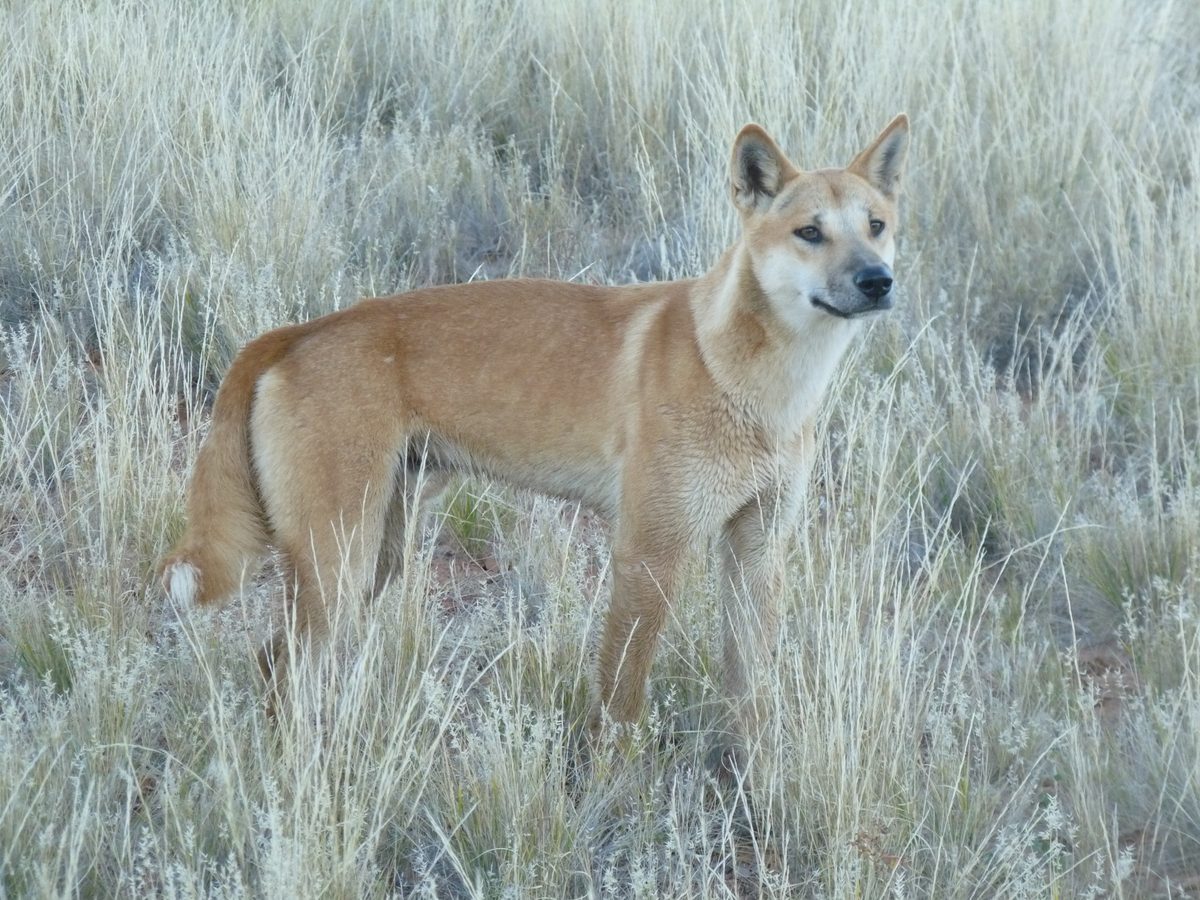Biteback News - December 2020
Biteback News - December 2020
Posted 27 November 2020.
The challenging times with restrictions has not stopped wild dog control occurring, rather just changed the way staff do things. All services will continue with social distancing measures in place and if you have any issues or concerns please contact Chris Havelberg (0458 566 536 christopher.havelberg@sa.gov.au) or Anna Rogers (0447 134 951 anna.rogers@sa.gov.au).
Injection Services
A total of 156 landholders received baits during the 2020 injection services in autumn and spring, with a total of 87,466 baits provided this year.
Gawler Ranges – 8,164 baits injected and 2,550 manufactured baits provided
Kingoonya – 12,321 baits injected and 6,050 manufactured baits
North East – 11,040 baits injected and 3,400 manufactured baits
North Flinders/Marree – 25,831 baits injected and 4,000 manufactured baits
North Fence – 12,010 baits injected and 2,100 manufactured baits
Aerial Baiting
The regular aerial baiting program was postponed until September with 47,695 baits dispersed over 88 participating properties over eight days. While the program ran as planned for the first five days, the sixth day was postponed due to a thunderstorm and heavy rains in the North East Pastoral district. The remainder of the program was completed on time.
The Department of Primary Industries and Resources (PIRSA) will offer an investigational aerial baiting program early this month. The program will drop baits at a higher density over properties that have recorded high wild dog activity. If you have any concerns or questions regarding this December program please contact Heather Miller via email Heather.miller@sa.gov.au or on 8429 2998 or 0488 426 395.
Organic Workshops
Organic workshops were held in November and provided a plan for landholders to maintain their organic certification while also controlling wild dogs through baiting. One method of dog control discussed was Canid Pest Ejectors. If you have any questions or wish to order the poison capsules or the complete units, please contact Chris or Anna.
Unsellable stock request
The 2020 spring injection services brought to light the shortage of meat with kangaroo processors unable to source enough kangaroos. A call is now going out to any properties, particularly those north of the dog fence, that have unsellable stock (eg cancer-eyed cows) that can be picked up and used as dog baits on south-fence properties. If you think you can help, please contact either Chris or Anna who will put you in contact with properties south of the fence to organise logistics.
Mapping
Property maps for the first half of 2021 (Jan – June) will be sent in early January. Please continue to return any old maps that you have lying around and when you receive the new 2021 map please return the 2020 July – December map in the self-addressed return envelope.
If you have chosen to report wild dog activity through the Wild Dog Scan app, there is no need to return a hard copy map. If you are interested in learning how to use the Wild Dog Scan app, please give us a call and we can pass along learning resources, or online training and give physical training at the scheduled coordinated injection services.
All information collected from the maps and through the Wild Dog Scan app, is used to guide wild dog control efforts in your area. If information is not received about wild dog activity on your property, it can only be assumed that no impacts are being experienced.
PIRSA Professional Trapper Program
Control of wild dogs is most effective when baiting, shooting and trapping are used as an integrated control program. Since the professional trapper program began in July 2018, 619 dogs were been removed across the entire state until 20 November 2020, with the majority being from the SAAL region. For more information contact Heather Miller at PIRSA.
PIRSA Bounty Program
The drought relief-funded bounty program started on 1 April and has been funded for two years. Thirty-three properties have claimed for 211 dogs until 20 November 2020. For more information about how to claim please contact Heather Miller at PIRSA.


